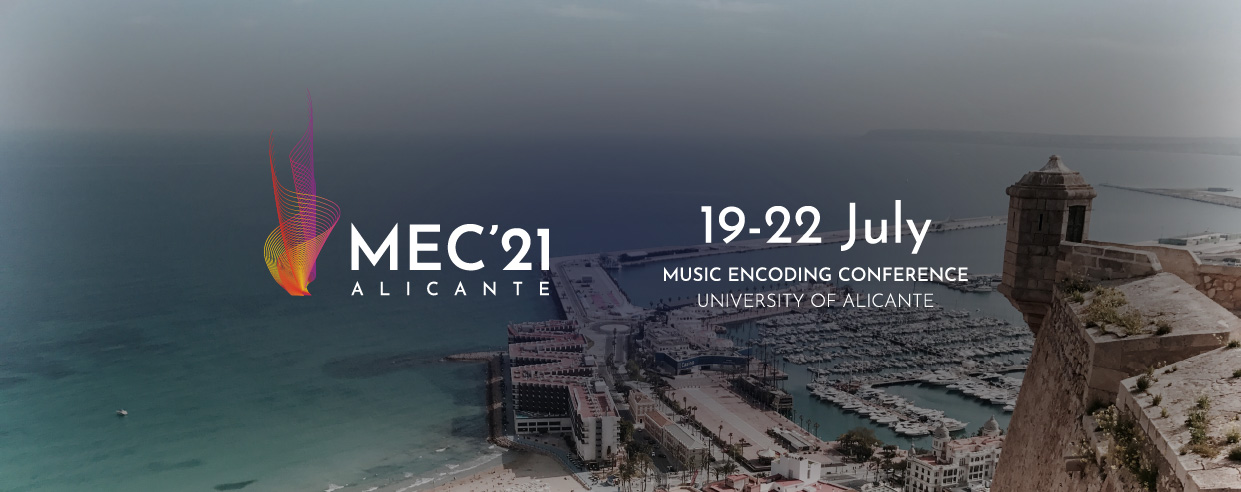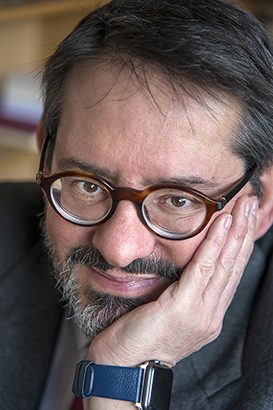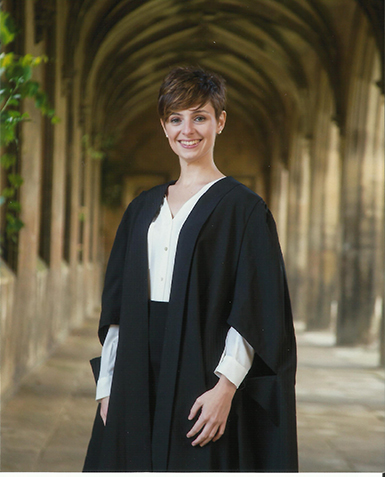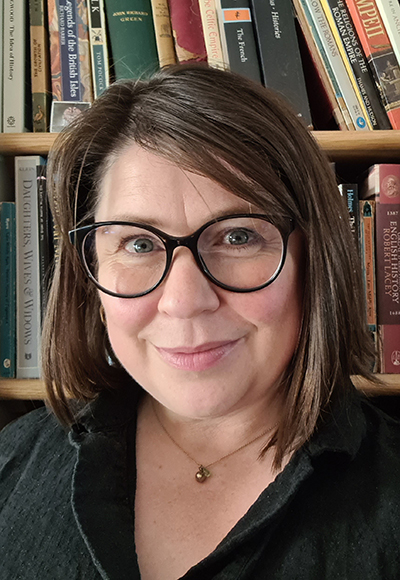
All the scientific events of the conference have been planned to take place online between 15:00 and 21:00h (CEST) using a mixture of teleconferencing tools (Zoom), social virtual spaces (wonder.me), and at least one (or more) Slack Townhall channel for asynchronous communication (wonder.me just works on Google Chrome and Microsoft Edge browsers).
Note the following schedule may change slightly. Attendees will have access to a website containing the links to the online platforms and times updated in realtime.
If you are an attendee and have not received login information, please contact the conference organizers.
|
Monday, 19 July 2021 (Workshops) |
Tuesday, 20 July 2021 | Wednesday, 21 July 2021 |
Thursday, 22 July 2021 (Un-conference)* |
|---|---|---|---|
15:30-18:00 Workshop Session #1Intro to Humdrum | Verovio | Intro to Lilypond 18:00-18:30 Break18:30-21:00 Workshop Session #2ODD Tutorials | Intro to MEI 21:00 Social meetings |
15:00-15:40 Online platforms and on-site venue open15:40-16:00 Opening16:00-17:15 Keynote #1Álvaro Torrente and Ana Llorens The Musicology Lab: Teamwork and the Musicological Toolbox 17:15-17:45 Break17:45-19:15 Paper presentations #119:15-19:45 Break: discussion of papers19:45-20:00 Break20:00-20:15 Poster slam20:15-21:00 Posters21:00 Social meetings21:30 Dinner |
15:00-15:20 Music eventEl Misteri d'Elx: talk by Rubén Pacheco 15:20-15:30 Short break15:30-16:45 Panel16.45-17:15 Break17.15-18:45 Paper presentations #218.45-19:15 Break: discussion of papers19:15-19:30 Short Break19:30-20:45 Keynote #2Automatic for the People: archives and the future 20:45-21:00 Closing |
14:00-15:00 Board meeting15:00-16:00 Community meeting (open to all)16:00-16:30 Meet the MEC2021 design team16:30-17:30 Interest groups (IG) meetingsMetadata IG | Mensural IG 17:30-17:40 Short Break17:40-18:40 Interest groups (IG) and other meetingsDigital Pedagogy IG | MerMEId Community 18:40-18:50 Short Break18:50-19:50 Interest groups (IG) meetingsNeumes IG | Tablature IG 19:50-20:00 Short Break20:00-21:00 Interest groups (IG) meetingsLinked Data IG | Analysis IG |
(*) No registration is required for the meetings. Please contact your Interest Group chair for attending the meeting.
 |
Álvaro TorrenteProfessor of Music History, Universidad Complutense de Madrid, and Director, Instituto Complutense de Ciencias Musicales (Spain)Álvaro Torrente holds a degree in Musicology from the Universidad de Salamanca (1993) and a PhD from the University of Cambridge (1997). He is Professor in Music History at the Universidad Complutense de Madrid and Director of the Instituto Complutense de Ciencias Musicales. His research focuses on Italian opera and Spanish vocal music of the 17th and 18th centuries. His publications include La ópera en España e Hispanoamérica (with E. Casares, 2001), Devotional music in the Iberian World (with T. Knighton, 2007), which received the Stevenson Award of the American Musicological Society (2008), and Historia de la Música en España e Hispanoamérica: La música en el siglo XVII (2016). Álvaro is Associate Editor of The Operas of Francesco Cavalli (Bärenreiter), and his editions early operas earned the the Deustche Musikeditionpreis (2013) and have been performed at the Royal Opera House, Bayerische Staatsoper, Frankfurt Opera, Theater Basel, Teatro Real and Nederlandse Oper. He is Principal Investigator of the project Didone. The Sources of Absolute Music: Mapping Emotions in Eighteenth-Century Italian Opera, funded by an ERC Advanced Grant. |
 |
Ana LlorensInstituto Complutense de Ciencias Musicales (Spain)Ana Llorens holds a PhD from University of Cambridge (2018). She is ‘Juan de la Cierva’ postdoctoral fellow and technical supervisor in the ERC project DIDONE at the Instituto Complutense de Ciencias Musicales (ICCMU). Her research focuses on the analysis of large musical corpuses, both scores and recordings. She is lecturer at the Universidad Internacional de Valencia and has made reviews for journals such as Music Theory & Analysis, Anuario Musical, Musurgia, and Musicae Scientiae. With Walter A. Clark and Á. Torrente, she is editor of the forthcoming The Cambridge History of Music and Spain. |
 |
Pip WillcoxHead of Research, The National Archives (UK)Pip Willcox is Head of Research at The National Archives (UK). The National Archives carries out research across several fields including applied computer science, archival theory and practice, conservation and heritage science, and the contents of the collections. Pip’s own research is interdisciplinary, and brings together collections, technology and people. She retains a personal research interest in music technologies and AI for creativity from her time on the Fusing Audio and Semantic Technologies UK research programme. Her current projects include Engaging Crowds and Deep Discoveries, funded by the UK Arts and Humanities Research Council’s programme Towards a National Collection. In her previous role she founded the University of Oxford’s Centre for Digital Scholarship at the Bodleian Library, and directed the Digital Humanities at Oxford Summer School. |
Convenors: Laurent Pugin & Andrew Hankinson
Verovio is an open-source library for engraving MEI scores. It can be used in a wide range of programming environments, including as a JavaScript toolkit in webpages. Verovio output is in SVG, an XML vector graphic format that makes it possible to easily interact with the encoding of the music score. It is used in dozens of digital musicology projects, with applications in digital critical editions, genetic editions, early music, audio alignment, online editing, music addressability, visualisation, performance, andeven composition via artificial intelligence.
The development of Verovio is conducted in close collaboration with the MEI community and is meant to be as generic as possible. Verovio itself is a C++ codebase hosted on GitHub and around which a rich development ecosystem has been put in place over the years. This ecosystem, which is continuously increased and improved, will be the focus of the workshop.
Convenors: Dennis Ried & Daniel Fütterer
The course will first explain the syntax and basic functions of LilyPond using simple examples that will be implemented together with the participants. Building on this, workshop participants will be introduced to more complex examples from real projects (including splitting into multiple files, grouping settings into variables, working with (orchestral) scores and vocal excerpts, working in a team and with version management). The extension OLL with scholarLy even allows the integration of critical annotations on the spot, which is a big advantage compared to working with other notation programs (usually critical annotations have to be entered separately). An introduction with first application examples will be given in this module.
The second part will be about the interfaces of LilyPond: Import from MusicXML, exportfrom MEI to LilyPond with MEILER, integration with LaTeX (glyphs and note examples in running text, larger note examples, critical report with scholarLy).
Convenor: Craig Sapp
Presentation slides: https://bit.ly/mec2021-humdrum
The workshop will start with a hands-on tutorial of the Humdrum data format, beginning with fundamentals of encoding music notation in Humdrum using the Verovio Humdrum Viewer (VHV). Participants will learn how to import MusicXML/MEI files into VHV and convert them into Humdrum data, as well as exporting Humdrum data to MEI and PDF files. A survey of graphical editing capabilities in VHV and equivalent direct textual changes to the Humdrum data will be compared. Basic data processing methods such as adding lyrics and figured bass will be presented. Encoding and working with mensural music as Humdrum data will be covered depending on the interests of the participants.
Recent updates to VHV such as the toolbar will be highlighted, including saving and loading data into persistent buffers within the web browser, searching musical content, and linking VHV to Google Spreadsheets, which increases efficiency for certain types of editing. Data processing and analysis using the filter toolbar will also be demonstrated. Batch processing and analysis of Humdrum data on the command-line will be demonstrated and compared to VHV filters.
Participants will learn how to export their digital scores as HTML files using the Humdrum Notation Plugin for online publishing. Applications of Github for managing digital scores will be discussed, with example repositories being Bach chorales and Beethoven sonatas, and how such repositories can integrate into VHV’s built-in score menu or your own websites. The remainder of the workshop will demonstrate various web interfaces to Humdrum digitals scores, including the Tasso in Music Project (github), the Josquin Research Project (github), Digital Editions of Chopin First Editions at the Fryderyk Chopin Institute, and the Polyrhythm project (github).
Convenors: Maristella Feustle & Perry Roland
This workshop is designed to introduce MEI to those interested in its history, current uses, and future development. No previous experience with MEI or XML is required; however, an understanding of music notation and other markup schemes, like HTML and TEI, will be helpful. For hands-on exercises, participants are encouraged to install the oXygen XML editor, which is available for free from www.oxygenxml.com for a limited trial period, or similar software.
Convenor: Johannes Kepper
This advanced technical workshop is aimed at members of the music encoding community who want to contribute to the development of the MEI schema. The goal is to broaden the insight into the technical dimensions of MEI, and to increase the pool of people working on its development. Familiarity with the MEI specification and some technical experience is expected (in particular, familiarity with XML and the concepts of elements, attributes, and values).
During the workshop, we will walk through the Advanced MEI Online Tutorial “Understanding ODD –A tutorial on the internal structure of MEI.” This tutorial introduces the basic concepts of the ODD (One Document Does-it-all) language in which the schema of MEI is written. We will explain the basic principles of the ODD structures found in MEI through the individual examples covered in the tutorial.
Session chairs: Jorge Calvo-Zaragoza & Martha E. Thomae
Session chair: Andrew Hankinson
Session chairs: Julia Flanders & Craig Sapp
Session chairs: Sophia Dörner & Daniel Bangert
Session chairs: Margrethe Bue & Salome Obert
Annual meeting of the Music Encoding Initiative community (open to all). Includes community-related topics, announcement of upcoming MEC venue and much more.
Meet the graphic design team from the Escola d'Art i Superior de Disseny d'Alacant (EASDA-ISEA.CV), Spain, responsible for the MEC2021 layout: Alicia Orts, Naomi Barrachina, Luis González, Aida Cabañero, Isabel Llorca, Elías Amorós, Miguel Arnau, Esther de las Heras (coord.).